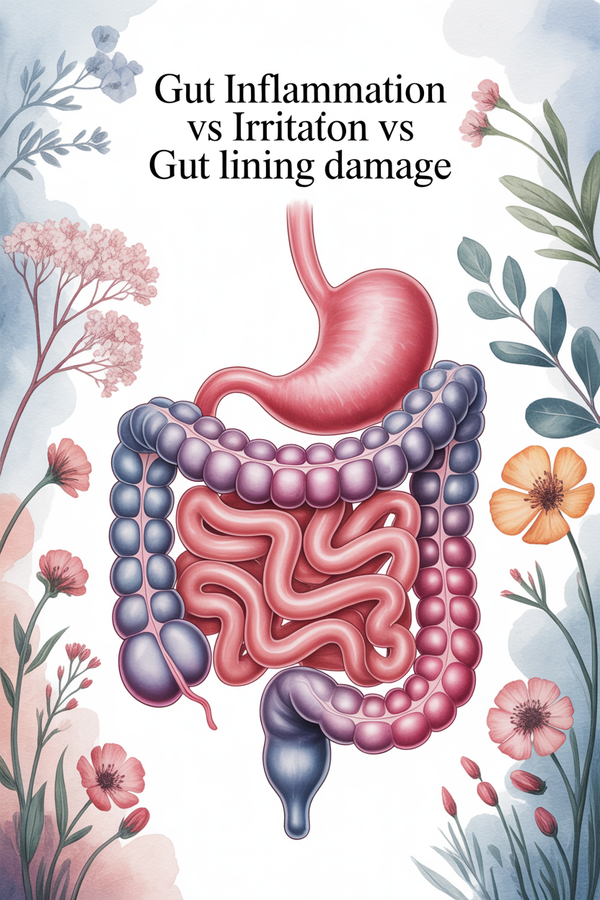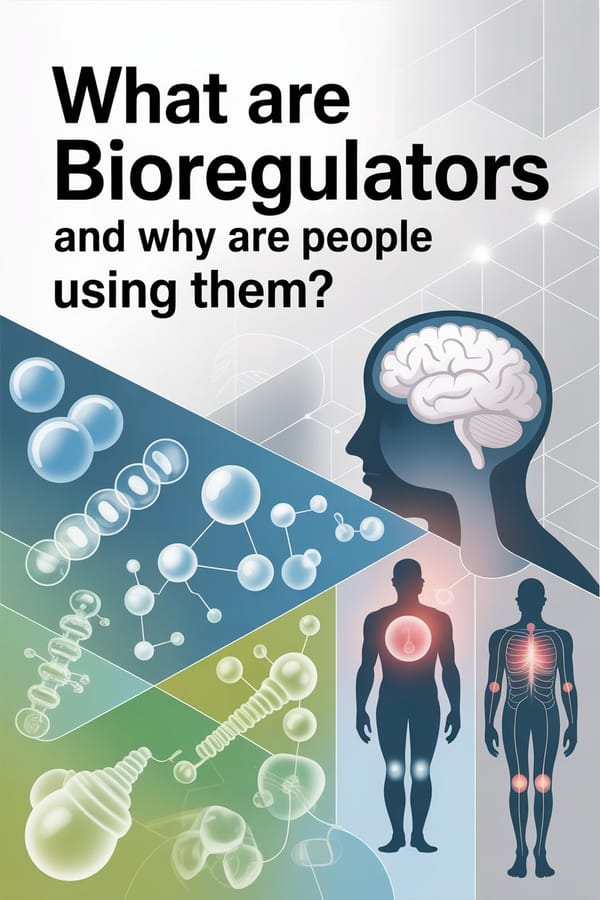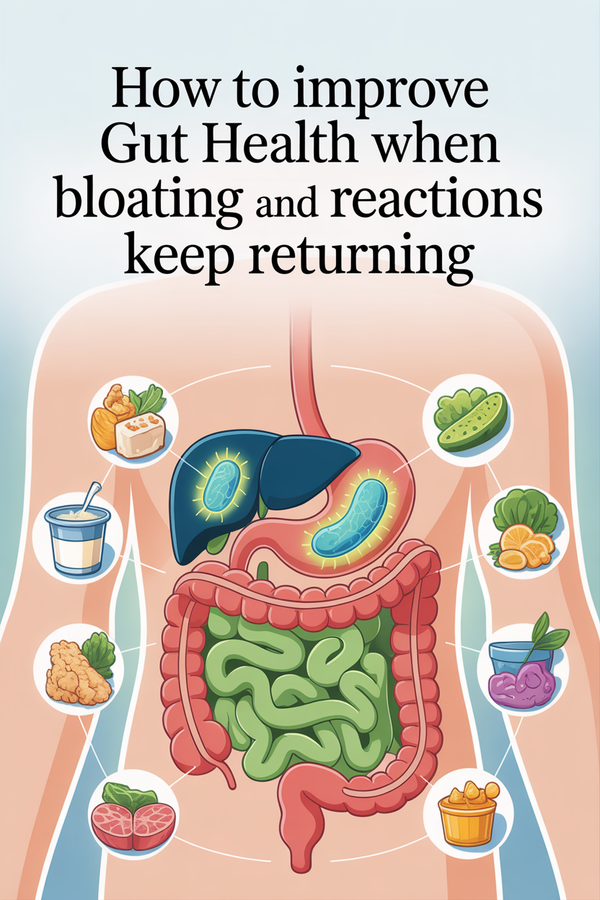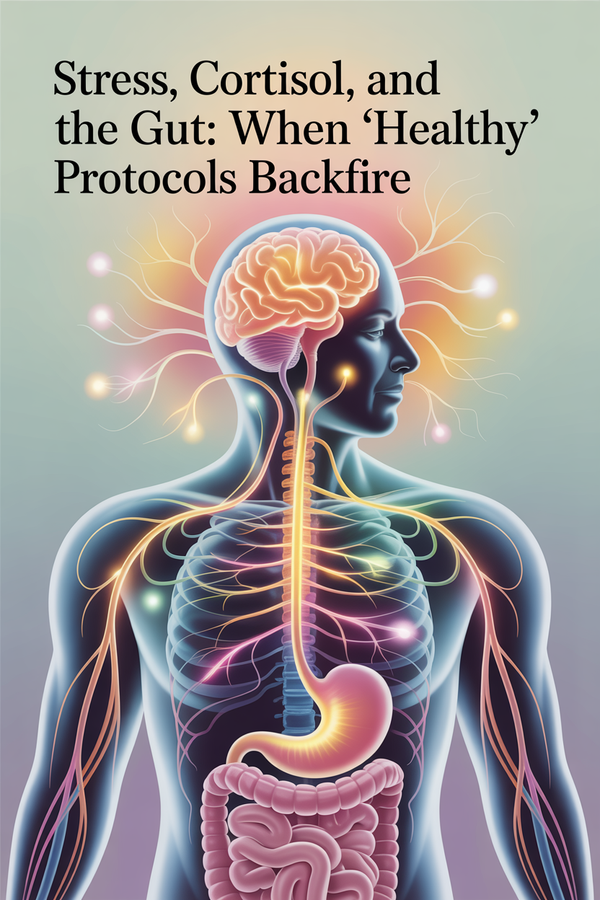Sugar, Yeast, and the Fermented Freakshow in Your Belly
Craving sugar like crazy? Bloated and exhausted? Candida overgrowth could be silently wrecking your gut and fueling inflammation. Learn how to beat yeast naturally and finally heal your gut from the inside out.
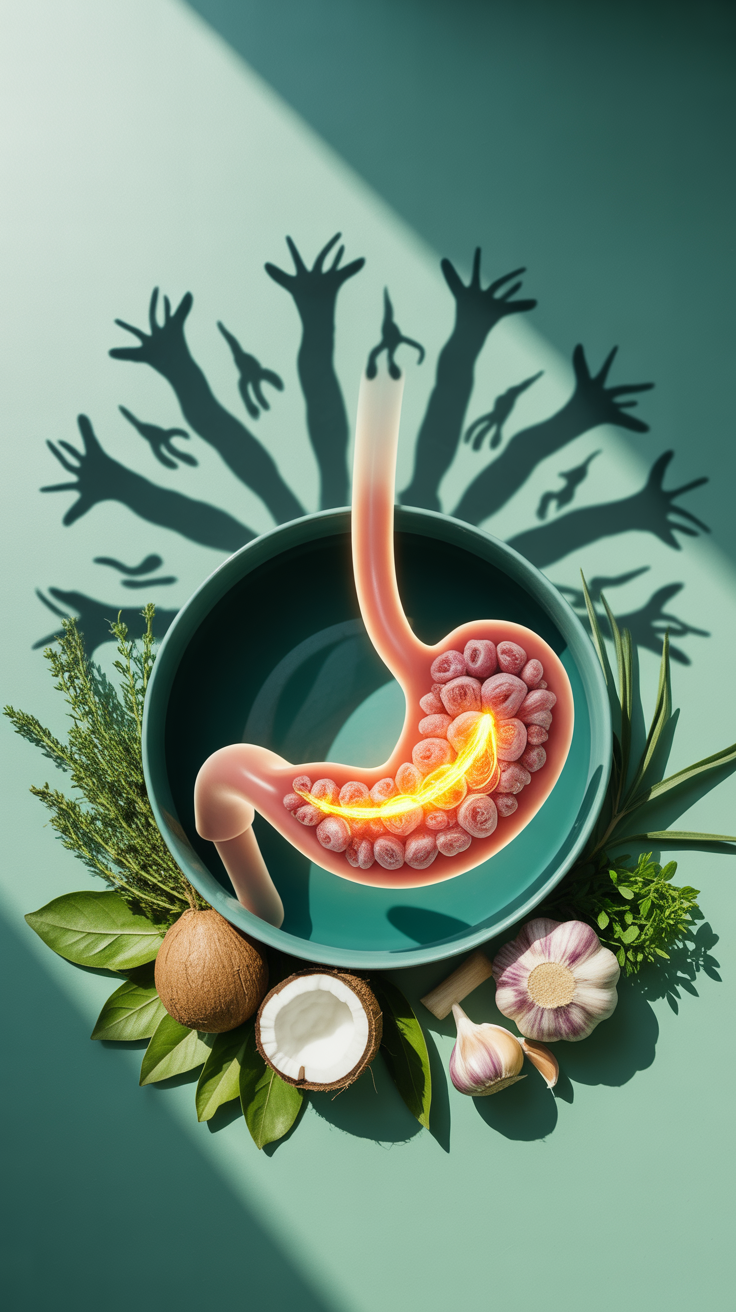
Is sugar calling your name 24/7? Do you look pregnant- but you’re a dude? Battling brain fog at the ripe old age of 30? Or sporting a creepy white fur coat on your tongue? You might be blaming hormones or “just getting older,” but here’s the gut-wrenching truth: a hidden candida overgrowth could be silently hijacking your gut health, fueling chronic inflammation, leaky gut, stubborn bloating, and relentless sugar cravings..
Candida is a fungus that loves sugar more than you do- and when it multiplies out of control, it can damage your gut lining, flood your body with toxins, and leave you feeling exhausted, foggy, and inflamed. If you’ve been searching for how to heal your gut, fight bloating, beat sugar cravings, or improve your microbiome balance, tackling candida might be the missing piece you’ve never heard about. Let’s dive into how to kick candida to the curb- and reclaim your gut health and energy for good.
The Sugar-Yeast Love Affair
Candida is a yeast (a fungus, really) that lives in your gut.
It’s supposed to be there- in small amounts.
But sugar? Sugar is its favorite fuel.
Give it sugar, and it multiplies like a sorority rush gone wild.
We’re talking:
- White sugar
- Bread
- Pasta
- Alcohol
- Even “healthy” sweeteners like agave and fruit juice
When candida takes over, things get fermented real quick… and not in the good kombucha way.
Signs You’re Hosting the Yeast Feast
- White tongue coating
- Vaginal yeast infections
- Intense sugar or carb cravings
- Gas, bloating, constipation, or diarrhea
- Skin rashes (especially under breasts or in skin folds)
- Itchy ears, rectum, or skin (sorry, TMI but real)
- Brain fog or mood swings
- Feeling worse after antibiotics
This isn’t “just aging” or “just hormones.” It’s yeast rebellion.
Why This Matters for Gut Health
An overgrowth of yeast damages your gut lining, wrecks your immune system, and creates mycotoxins—nasty waste products that affect your liver and brain.
Plus, once they overgrow, they start forming biofilms (a slimy shield) that make them resistant to herbs, meds, and even your immune system.
How to Kick Candida Out (Without Starving Yourself)
1. Cut the Sugar
You can’t starve yeast while feeding it dessert.
Start with processed sugar, then pull back on refined carbs and alcohol.
2. Support Drainage First
Dying yeast dump toxins- fast. If you’re not pooping, sweating, and moving lymph, you’ll feel worse before you feel better.
3. Add Antifungals
Natural options include:
- Caprylic acid (from coconut)
- Pau d’arco
- Oregano oil
- Black walnut
- Garlic
These are great after drainage is moving.
4. Rebuild the Good Guys
Probiotics are key- but only once the terrain is cleared.
Spore-based or soil-based probiotics tend to perform best after candida.
5. Stay Consistent
Candida die-off isn’t a one-and-done situation.
Plan for a few months of effort, not a weekend juice cleanse.
Yeast Die-Off = Real
Feeling worse before you feel better is common.
Think headaches, fatigue, irritability, body aches, even flu-like symptoms.
This is not a sign it’s not working- it’s a sign your body is trying to detox.
Stay hydrated, use binders, and go slow.
💛 In Case You Skimmed
- Sugar feeds yeast, and yeast overgrowth wrecks your gut
- Candida symptoms are sneaky and easy to misdiagnose
- A strategic approach (sugar removal → drainage → antifungals → rebuilding) works best
- Be patient and don’t skip the detox support
When the system doesn’t give us answers, we find them ourselves—and we share them with people who are ready.
We’re not waiting for permission,
Jamie Shahan MSN, CRNA, RN
Empowering Holistic Health
🌐 Connect with me on Social Media:
⚠️ Disclaimer
The information on this website is for educational purposes only and is not intended to diagnose, treat, cure, or prevent any disease. The content reflects the personal research, experiences, and opinions of Jamie Shahan and should not be considered medical advice. Always consult with your healthcare provider before making any decisions about your health, especially if you are pregnant, nursing, have a medical condition, or are taking medications.
Some links on this site may be affiliate links, which means I may earn a small commission if you choose to make a purchase—at no additional cost to you. I only recommend products I use myself or would confidently recommend to someone I love

